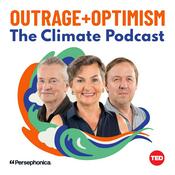68 episodes
- Black holes can be bigger on the inside than they are on the outside. Astrophysicist Janna Levin explains how this is possible, and what that means about how black holes work.
For more, check out the extended interview with Janna Levin.
Learn more about NOVA and subscribe to our YouTube channel. - Are we really in control of our own minds? Research suggests our sense of control may be far more fragile – and far stranger – than we imagine. From moments when the body seems to act without us, to the eerie ways our brains can warp what we think we’ve heard, scientists are uncovering a picture of the mind that’s anything but straightforward. And beneath it all lies a surprising discovery: the brain is less an observer of reality than a prediction engine, forever guessing what comes next.
To watch the full film, visit https://www.pbs.org/wgbh/nova/series/your-brain/
Learn more about NOVA and subscribe to our YouTube channel. - What’s the difference between a fact, a law, and a theory? Mineralogist Robert Hazen and astrobiologist Michael Wong unpack the hierarchy of scientific ideas and reveal how laws of nature elegantly unify the universe.
For more, check out the extended interview with Robert Hazen and Michael Wong.
Learn more about NOVA and subscribe to our YouTube channel. - Sorry, Beyoncé, it turns out microbes rule the world. Microbiologist Peter Girguis explains how to conceptualize just how many microbes are on Earth… and how understanding this helps us look for life on other worlds.
For more, check out the extended interview with Peter Girguis.
Learn more about NOVA and subscribe to our YouTube channel. - Scientists have discovered the oldest DNA ever found: tiny fragments hidden in the dirt. The idea that soil could hold genetic traces from creatures that vanished millions of years ago seemed impossible – until one researcher had the wild idea to go and look. But how did he find DNA that most scientists thought could never survive? What forgotten worlds can this buried DNA reconstruct? And what might these revelations tell us about our own future on a rapidly changing planet?
To watch the full film, visit here.
Learn more about NOVA and subscribe to our YouTube channel.
More Science podcasts
Trending Science podcasts
About NOVA Presents
Ever wonder what's really going on in the world of science? We've got you covered. Join us for conversations with the researchers making tomorrow's breakthroughs, deep dives into the universe's biggest mysteries, and clear explanations of the discoveries that matter most. We're talking climate breakthroughs, space mysteries, AI developments, and quantum leaps, all explained by the people doing the work.Whether you're curious about breaking headlines, fascinated by black holes and alien worlds, or ready for mind-bending conversations with brilliant scientists, NOVA Presents delivers four incredible series that make complex science feel like chatting with your smartest friend. For over 50 years, NOVA has been your trusted guide to understanding the world, now we're bringing that same curiosity and clarity straight to your ears. Come explore with us.Discover more NOVA content and subscribe to our YouTube channel.
Podcast websiteListen to NOVA Presents, Boring History for Sleep and many other podcasts from around the world with the radio.net app

Get the free radio.net app
- Stations and podcasts to bookmark
- Stream via Wi-Fi or Bluetooth
- Supports Carplay & Android Auto
- Many other app features
Get the free radio.net app
- Stations and podcasts to bookmark
- Stream via Wi-Fi or Bluetooth
- Supports Carplay & Android Auto
- Many other app features


NOVA Presents
Scan code,
download the app,
start listening.
download the app,
start listening.

































